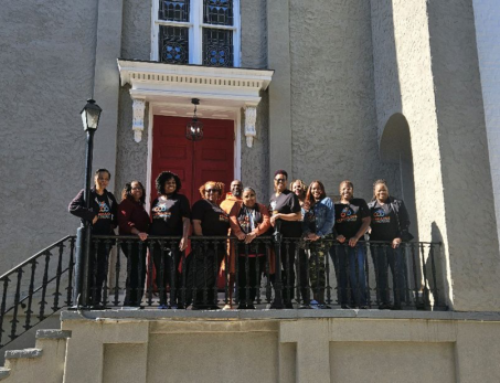We’ve been compiling lists of suggested resolutions for years now. (Admittedly, in 2021 we forgot to compile it in time for New Year’s Day, so we ran it as Resolutions for the Lunar New Year. Cute, but a bit off the mark.) Most years, our resolutions have really focused on fundraising, which, for a company named “Our Fundraising Search” probably makes a lot of sense. But as we have grown in scope, and because we strive to be a thought partner to nonprofits in the broadest sense of the word, we’ve broadened the list this year to include the boards and executive directors as well.
Resolutions for Fundraisers
Resolve to be a data-driven fundraiser
There is terminology in the world of programming: data driven versus event driven. “Data driven” means the data determines what happens next. It is a proactive response. “Event driven” means some event causes what happens next. It is a reactive response.
We need to have a similar concept in the world of fundraising.
Time is our most precious commodity. Time wasted on one activity is time that could have been used better on another activity. So, the more data you have on a prospect, the more you can determine a strategy for that prospect as opposed to reacting to it. We strongly advocate that fundraisers should be using better data tools like Candid (formerly Foundation Center) and DonorSearch in order to save time when prospecting for donors. (Please also remember that current and former clients can get DonorSearch through Our Fundraising Search at a pretty substantial discount. Contact us.)
Fundraise for the long game
We all know that fundraising is about building and maintaining relationships. However, when the fiscal year is ending and you are behind goal, it’s easy to forget about relationships in the name of dialing for dollars. That is not the path to major gifts or sustainable fundraising. This past November, Donorbox published a great article on “9 Ways to Build Strong Donor Relationships.” We found that items 7, 8, & 9 are especially insightful in helping you think strategically about your individual giving strategy.
Resolutions for Executive Directors
Don’t become a victim of fraud
Invest in your business practices. In a recent OFS Newsletter, we touched on how, in 1989, the Foundation for New Era Philanthropy concocted a Ponzi scheme that cost American charities more than $135 million. This was not a one-time-only event.
In November, 2023, For Purpose Law Group released its annual Charity Fraud Awareness Survey Results. While this anti-fraud education project began in the U.K. eight years ago, it has since expanded globally and now counts among its supporters and participants many lawmakers, regulators, and other government officials from the Commonwealth nations and the United States. It is quite a read. Among its findings are a significant uptick in fraud targeting charities – cybercrime in particular – because those organizations typically underinvest in adequate staffing and training to set-up and monitor antifraud systems. Worse, despite the growing size and complexity of fraud targeted at nonprofits, “only 7% of charities considered misappropriation of assets or cash to be a significant risk in the future, yet this is by far the most common type of fraud in the past year.”
Don’t let this happen to your organization. The first, best place to seek advice on how to beef up your financial control processes is your auditor. They see the best and worst out there, and it is in their best interest to help you protect your assets.
Resolve to retain talent
We’ve written much about this in recent years. Last year, the average turnover rate for nonprofit organizations was 19%, whereas the average all-industry turnover rate was 12%. Employee retention should be as integral to pursuing your mission as fundraising and core programming. Yet, there are many leaders among us who believe turnover is the fault of the employee.
It is not the employee’s responsibility to retain themselves. Talent retention is the responsibility of management.
Our salary and satisfaction survey validated this. While it is easy to blame compensation for turnover, the data shows that employees leave primarily because of impossible goals, unrealistic expectations and toxic work places. All of those are things that can be fixed by the executive director.
We recently attended a symposium which focused on how to lure and/or force nonprofit workers back into the office. Unfortunately, the question was never contemplated whether we really need to. Weworkremotely.com reports data from a survey that found 74% of employees would quit their current jobs to work remotely for a different organization, even if the salary stayed the same. They also reported that:
- Full time remote workers in the US save over $4,000 annually by not commuting;
- They also earn $4,000 more on average; and
- 75% of employees working remotely earn at least $65,000 per year, placing them in the upper 80th percentile of all US employees.
When we sign a new client for search services, we always ask about the possibility of remote work. We encourage all nonprofits to consider whether the sector can and should be the leaders in it.
Evaluate whether it is time to create a new strategic plan
A lot has changed in the last four years. We generally recommend that organizations conduct the strategic planning process every three years. Consider your plan and whether it is time to revisit it.
We recently completed an engagement with one of our clients that was, perhaps, the best and easiest strategic plan we’ve worked on. The client was able to parlay the work into a major endowment gift.
Now, we are not warranting or representing that our strategic plans will always result in significant gifts, but a strategic plan is the foundation upon which successful fundraising and growth are built. It also helps establish roles and boundaries for everyone, improves the efficiency of decision making, and creates more overall momentum for the organization as a whole.
Resolutions for Boards of Directors
Resolve to be a better board
The board of directors is the governing body of the nonprofit. The board should focus on high-level strategy, oversight and accountability of the organization, as opposed to the managers and employees who oversee the day-to-day operations of the nonprofit. The board should be the most important and valuable resource for the executive director.
Unfortunately, that is often not the case. Too often, board members forgo their fiduciary duties to steer the organization towards a sustainable future in order to focus on trivial matters. Worse, many operate under the mistaken belief that they are there to “actively manage” the nonprofit.
When we say “resolve to be a better board,” we mean that, collectively, the board should examine itself against these standards and, if falling short, actively work to improve in the coming year.
Standards for an Effective Board:
- Conduct meetings that are focused, efficient, and deal with helping the organization achieve its goals.
- Be clear on matters of governance versus management. The board must hold the executive director/CEO accountable for the performance of the organization but must not attempt to usurp their role and responsibilities.
- Work to recruit and retain board members who are valuable to the organization. (A board seat is more valuable left empty than filled with a poor performing board member.) Also, have an effective board member orientation process.
- Have a code of conduct for board members that explicitly includes an effective means for resolving conflicts professionally.
- Support fundraising. (Yes, fundraising is a critical function of all boards of directors.)
(Note: If you fall short on any of these fronts, we offer “Ready to Board” governance training which helps jumpstart board effectiveness.)
All of us at Our Fundraising Search wish you a safe, healthy and successful 2024.






Leave A Comment
You must be logged in to post a comment.